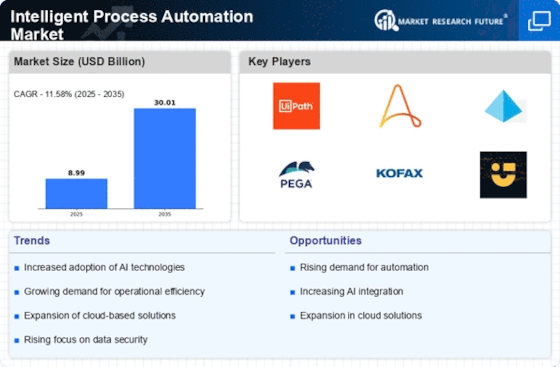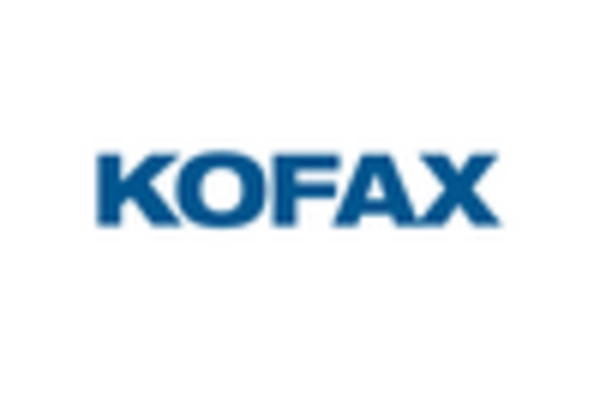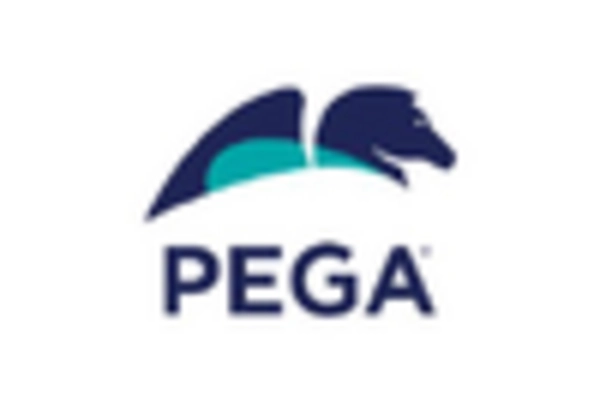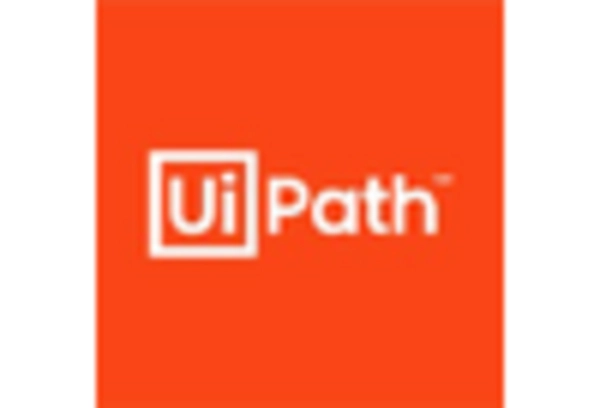Market Trends
Key Emerging Trends in the Intelligent Process Automation Market
The IPA market is as of now encountering prominent patterns that are moulding its direction and impacting the manner in which associations approach robotization. One huge pattern is the rising reception of hyperautomation. Hyperautomation includes the incorporation of different innovations, like mechanical cycle robotization (RPA), man-made brainpower (computer-based intelligence), AI (ML), and interaction mining, to make an exhaustive mechanization environment. Hyperautomation is becoming more and more recognized for its potential to streamline intricate business procedures and boost overall productivity. This pattern mirrors a move past conventional mechanization draws near, with organizations looking for coordinated arrangements that can deal with start to finish processes and adjust to dynamic conditions.
One more conspicuous pattern in the IPA market is the attention on improving the client experience through smart mechanization. Associations are utilizing IPA arrangements not exclusively to streamline inside tasks yet in addition to make a more consistent and customized insight for their clients. Via mechanizing client confronting processes and integrating simulated intelligence driven experiences, organizations can give quicker reaction times, expect client needs, and convey a more significant level of administration. This pattern lines up with the developing significance of client driven procedures in the present serious scene, where positive client encounters are urgent for supporting business development.
The fuse of man-made reasoning and AI calculations is an overall pattern that keeps on developing inside the IPA market. These innovations engage mechanization frameworks to gain from information, settle on astute choices, and consistently work on over the long haul. AI calculations empower IPA answers for handle more mind-boggling undertakings, adjust to changes in information examples, and upgrade dynamic abilities. As associations try to remove significant bits of knowledge from the huge measures of information available to them, the mix of artificial intelligence and ML in intelligent process automation becomes instrumental in driving significant business results.
In addition, a key trend in the IPA market that is gaining traction is the democratization of automation. Customarily, mechanization arrangements were in many cases complicated and required specific abilities for execution. In any case, there is a shift towards making computerization devices more open to a more extensive crowd inside associations. This pattern includes working on the UIs, giving low-code or no-code robotization stages, and offering preparing projects to empower representatives with shifting expertise levels to take part in the computerization venture. Democratization means to engage non-specialized clients to add to the plan and execution of mechanization processes, encouraging a more comprehensive way to deal with computerization reception.
Interoperability is arising as a basic pattern in the market as associations look for consistent mix between various frameworks and applications. The capacity of IPA answers for work agreeably with existing IT foundation is turning out to be progressively significant. This pattern tends to the test of guaranteeing that mechanization advancements can really team up with inheritance frameworks, outsider applications, and arising innovations. Interoperability works with smoother execution as well as future-confirmations computerization speculations by permitting associations to adjust to developing mechanical scenes.
Supportability and dependable robotization rehearses are becoming basic to showcase patterns intelligent process automation. As organizations focus on corporate social obligation and ecological manageability, they are stretching out these contemplations to their computerization methodologies. The environmental impact of automation technologies is being evaluated, energy efficiency is being improved, and ethical considerations are being incorporated into automation procedures. This pattern mirrors a more extensive consciousness of the social and natural ramifications of innovative headways and highlights the significance of mindful robotization rehearses.


















Leave a Comment